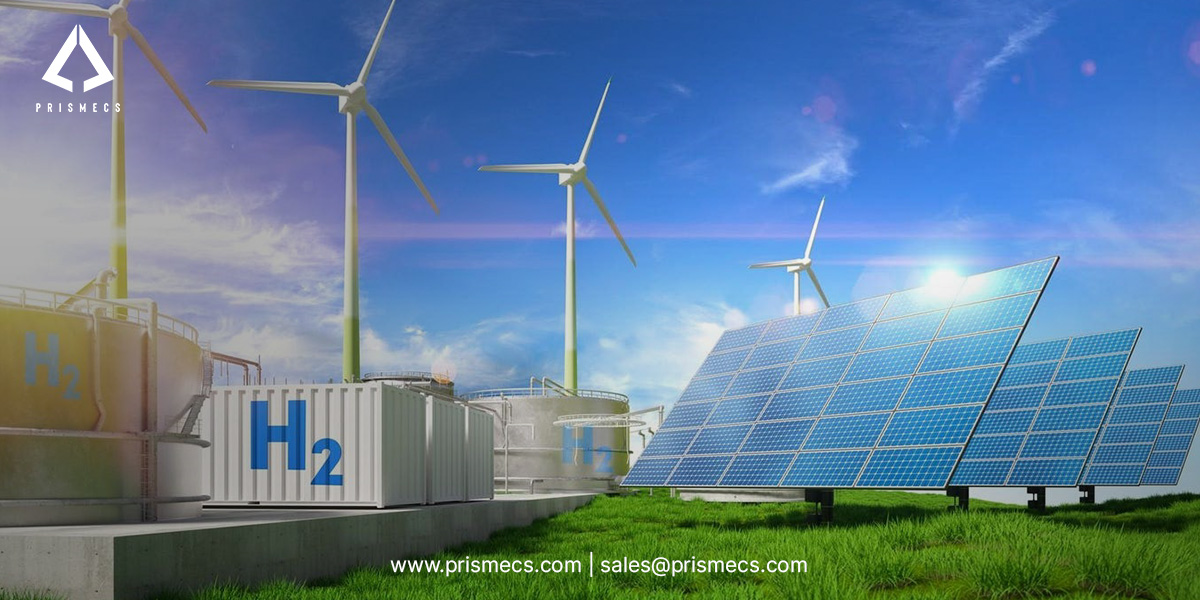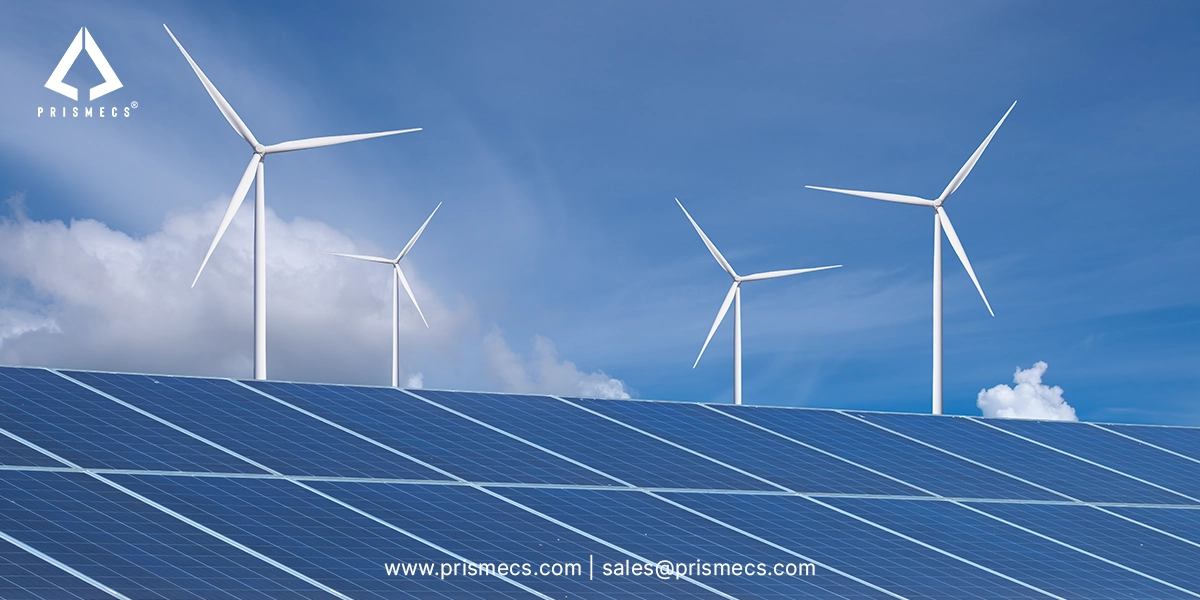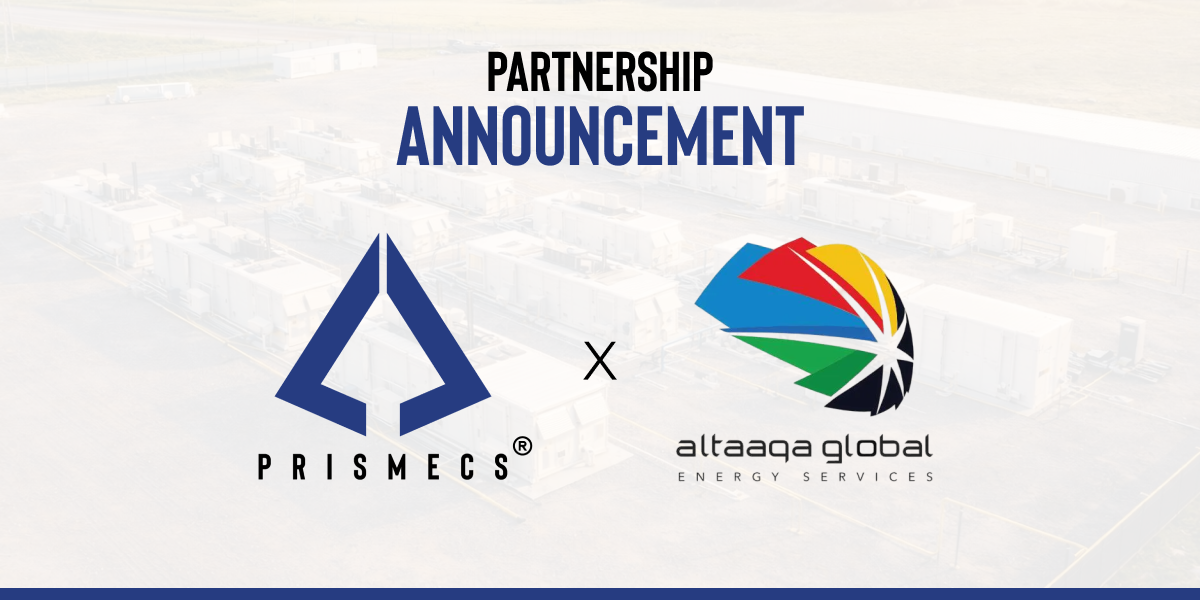
Green hydrogen is emerging as a key player in the global transition to clean energy. The world seeks to reduce carbon dioxide emissions. Nations aim to combat climate change actively.
Efficient green hydrogen production is crucial in this effort. Leveraging renewable energy sources to generate hydrogen and oxygen, green hydrogen presents a sustainable alternative to fossil fuels.
This blog explores the latest innovations in green hydrogen power generation. It highlights technologies driving efficiency in this field. We examine their potential impact on the energy landscape.
The Promise of Green Hydrogen
Water electrolysis produces green hydrogen. This process uses electricity from renewable sources. These sources include wind, solar, and hydropower. Grey hydrogen comes from natural gas and releases carbon dioxide emissions.
Blue hydrogen involves carbon capture to reduce emissions. Green hydrogen, however, is entirely clean. This makes it a key component in the pursuit of net-zero emissions.
Advancements in Electrolysis Technology for Utility-Scale Deployment
Electrolysis remains the core technology behind green hydrogen production, but its real-world viability depends on how effectively it can be integrated into large-scale power systems. For utility operators, IPPs, and industrial asset owners, the challenge is not the chemistry itself, it is system efficiency, reliability, and long-term operational performance.
Modern electrolysis solutions are increasingly being designed for high-capacity, grid-connected environments, where power quality, load variability, and uptime are critical. High-temperature electrolysis, when paired with renewable generation or waste heat recovery, can significantly improve overall system efficiency while reducing electrical demand.
From an engineering perspective, successful deployment requires careful consideration of:
- Power availability and grid interconnection
- Thermal integration with existing assets
- Control systems and automation
- Long-term operations and maintenance requirements
For large-scale green hydrogen projects, electrolysis technology must function as part of an integrated energy system not as a standalone component.
Market Growth Signals for Utility-Scale Green Hydrogen Deployment
The global green hydrogen market is entering a decisive growth phase as governments, utilities, and industrial operators move from pilot programs to commercial-scale deployment. Between 2024 and 2030, this expansion is being driven by large infrastructure investments focused on decarbonization, renewable energy integration, and long-term energy security.
Industry analysts project the global green hydrogen market to grow at a compound annual growth rate (CAGR) of approximately 15.8%, increasing from an estimated USD 2.5 billion in 2024 to nearly USD 12.9 billion by 2033. This growth reflects rising demand for bankable, grid-connected hydrogen projects rather than experimental installations.
For power producers, independent power producers (IPPs), and government-backed energy initiatives, this market trajectory underscores a critical shift: success in green hydrogen will depend less on concept validation and more on reliable engineering, scalable EPC execution, and long-term operations and maintenance support. As project sizes increase and performance expectations tighten, experienced partners capable of delivering and sustaining complex energy infrastructure become central to capturing this market opportunity.
Integrating Green Hydrogen with Renewable Energy Sources
Seamless integration of green hydrogen production with renewable energy sources is crucial for optimizing the sustainability and efficiency of this clean energy pathway.
Pumped Storage and Hydrogen Hybrid Systems
Combining pumped storage hydropower with green hydrogen production offers a hybrid solution. This system manages energy supply and demand effectively.
Surplus electricity generates during high renewable energy output periods. People use it to pump water to a higher elevation. When electricity demand peaks, the stored water releases to generate power.
Excess renewable energy powers electroliers to produce hydrogen. You can store the hydrogen and utilize it later. This process ensures that we waste no energy.
Direct Coupling with Renewable Power Plants
Directly coupling hydrogen production facilities with renewable power plants, such as wind farms and solar arrays, optimizes the use of intermittent renewable energy. This approach ensures that we utilize any excess renewable energy, which we might otherwise reduce, for producing clean hydrogen.
Projects in the United States and Europe are developing wind-to-hydrogen plants. These plants generate green hydrogen on-site. This process minimizes transmission losses and associated costs.
Hydrogen Storage and Infrastructure at Scale
Storage and distribution remain decisive factors in determining whether green hydrogen projects can operate reliably at scale. While hydrogen offers flexibility as an energy carrier, its storage and transport introduce engineering, safety, and operational complexities that must be addressed at the system level.
For utility-scale and industrial applications, hydrogen storage solutions must align with:
- Site constraints and safety regulations
- Dispatch requirements and load profiles
- Integration with existing power and gas infrastructure
Advances in storage technologies and pipeline materials are enabling more practical deployment, but long-term success depends on robust engineering design, compliant installation, and disciplined maintenance strategies. As hydrogen infrastructure expands, operators increasingly require partners who understand both energy systems and industrial operations, not just storage technologies in isolation.
Green Hydrogen for Industrial and Energy-Intensive Operations
Some of the strongest use cases for green hydrogen lie in energy-intensive industries such as metals and mining, petrochemicals, oil and gas, and large-scale power generation. These sectors require high reliability, continuous operation, and strict safety compliance making execution expertise as important as the fuel itself.
Green hydrogen can support these industries by:
- Replacing fossil fuels in high-temperature processes
- Providing dispatchable, low-carbon power
- Enhancing grid stability when paired with renewables and storage
Delivering these benefits at scale requires more than technology selection. It demands integrated engineering, procurement, construction, and long-term operations support to ensure assets perform reliably throughout their lifecycle.
Conclusive Remarks
The transition to a sustainable energy future depends on the widespread adoption of green hydrogen. Technological innovations in electrolysis drive efficiency. They enhance integration with renewable energy sources. Advanced storage solutions also improve green hydrogen power generation. Distribution solutions increase the scalability of green hydrogen power generation.
How Prismecs Can Help in Green Hydrogen and Power Generation
As these technologies advance, green hydrogen will play an increasingly vital role in reducing carbon dioxide emissions, enhancing energy security, and fostering economic growth.
Prismecs stands at the forefront of the green hydrogen revolution. We offer comprehensive solutions for green hydrogen. Our solutions integrate cutting-edge technological innovations. They enhance efficiency in green hydrogen power generation.
Contact Prismecs as a trusted partner. You can harness the potential of Green Hydrogen to forge a more sustainable future. To avail of our services, call us at +1 (888) 774-7632 or email us at sales@prismecs.com.
Tags: Green Hydrogen Power Generation Green Hydrogen Production Generating Electrical Hydrogen and Oxygen Clean Hydrogen Natural Gas Hydrogen Produced
recent posts

Power Generation
10 minutes read
How to Maximize Uptime in Power Generation Plants
Discover how Prismecs power plant maintenance helps operators prevent outages, protect revenue, and keep turbines running at peak performance. Learn h...

Renewables
8 minutes read
Opportunities in Renewable Energy Development
Explore Renewable Energy Development strategies focused on grid stability, faster deployment, and resilient power systems with Prismecs. Plan your nex...

Press Release
2 minutes read
Altaaqa Global & Prismecs Form Strategic Cooperation to Accelerate Modular Power Deployment Across USA
Prismecs and Altaaqa Global Announce Strategic Cooperation to Accelerate Modular Power Deployment in the United States Houston, TX & Dubai, UAE – Febr...

Procurement
9 minutes read
Complete Guide to Industrial Procurement Services
Explore Industrial Procurement Services for power and oil & gas projects. Cut delays, secure critical equipment, and build resilient supply chains wit...